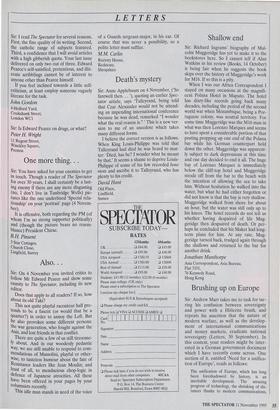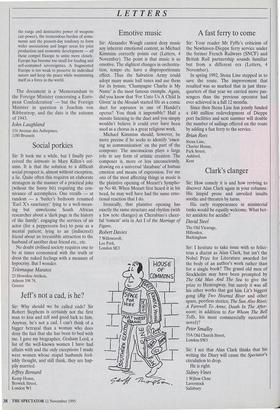Brushing up on Europe
Sir: Andrew Marr takes me to task for tar- ring his confusion between sovereignty and power with a Hitlerite brush, and repeats his assertion that the nature of modern warfare, as well as the develop- ment of international communications and money markets, eradicate national sovereignty (Letters, 30 September). In this context, your readers might be inter- ested in a German government document which I have recently come across. One section of it, entitled 'Need for a unifica- tion of Europe', reads as follows:
The unification of Europe, which has long been foreshadowed by history, is an inevitable development. The amazing progress of technology, the shrinking of dis- tances thanks to modern communications, the range and destructive power of weapons (air-power), the tremendous burden of arma- ments and the present-day tendency to form wider associations and larger areas for joint production and economic development — all these compel Europe to unite more closely. Europe has become too small for feuding and self-contained sovereignties. A fragmented Europe is too weak to preserve its individual nature and keep the peace while maintaining itself as a force in the world.
The document is a `Memorandum to the Foreign Minister concerning a Euro- pean Confederation' — but the Foreign Minister in question is Joachim von Ribbentrop, and the date is the autumn of 1943.
John Laughland
154 Avenue des Aubepines, 1180 Brussels



















































































 Previous page
Previous page